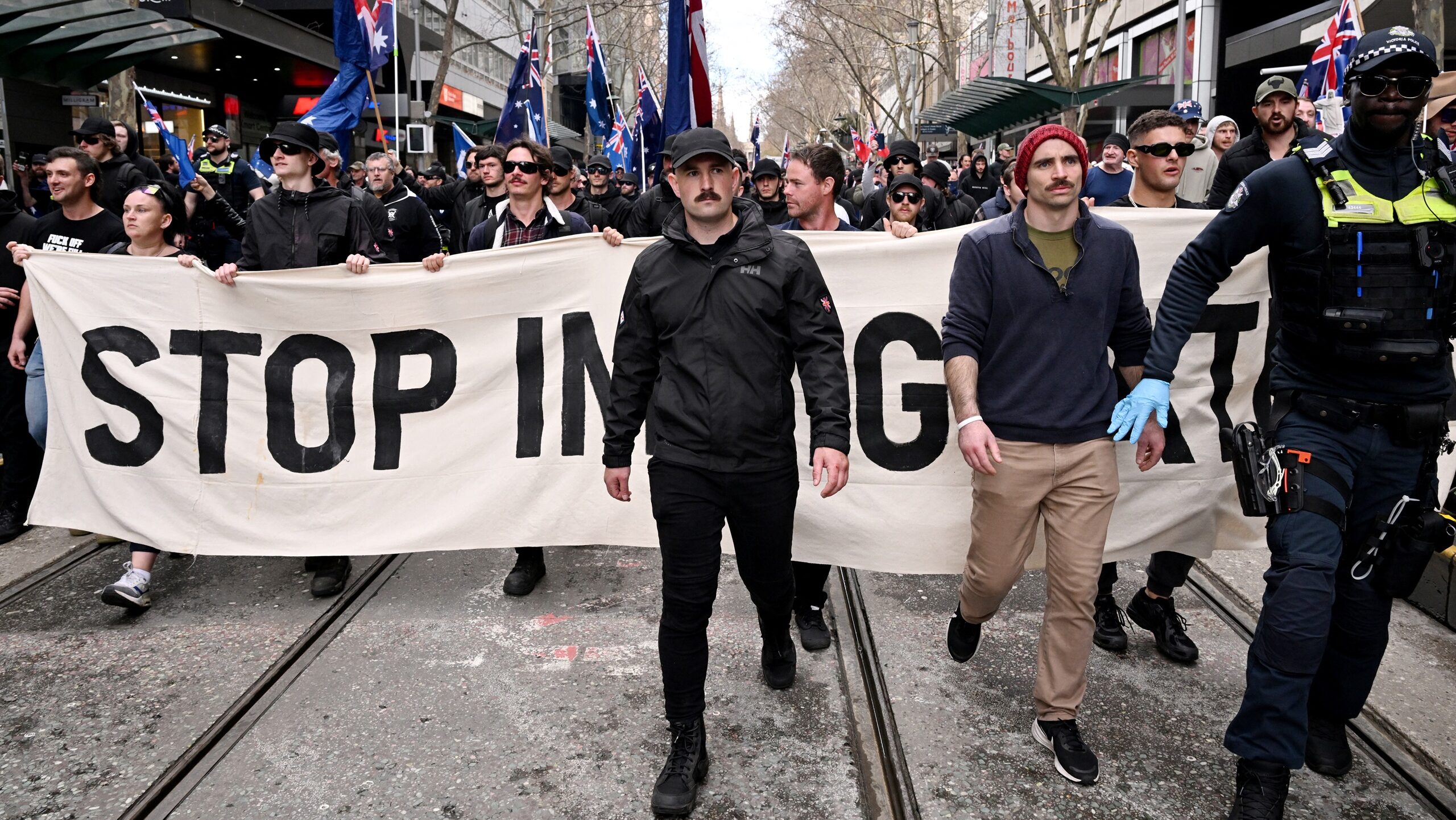Patriot Rallies in Australia and the UK Signal a Backlash Against Radical Left and Islamists
Organizers promote national identity and tougher immigration policies while governments and media argue the rallies enable far-right actors
Over the past month, major cities in Australia and the UK have seen large rallies where demonstrators waved Australian and British flags, with a smattering of Israeli flags. Organizers called for patriotism and for changes to immigration policy, arguing that current rules hurt the economy and social cohesion.
As the second anniversary of the October 7 massacre approaches, streets across the Western world have hosted weekly marches led by pro-Islamist groups alongside the radical left. The movement peaked in late July, when an estimated 90,000 people crossed the Sydney Harbour Bridge.
Throughout this period, while much of the mainstream media lined up with pro-Palestinian narratives, a segment of conservative outlets argued that, although the radical left and Islamists make the most noise, a silent majority resents their tactics and message. Many also objected to the burning of national flags and attacks on traditional Western values.
The reactions of the governments in Australia and the UK to these marches are instructive. Both left-wing governments have condemned Israel and recognized Palestine, and they have supported mass immigration, including from countries hostile to Western values. Officials labeled the marches as extreme right and, joined by mainstream media, accused participants of backing fascism and neo-Nazism.
In London, a key promoter was Tommy Robinson, a far-right provocateur with multiple jail terms. In Melbourne, a roster of speakers included neo-Nazi Thomas Sewell—giving authorities and media an easy cop-out to dismiss the crowd as far-right. Yet far-right extremists remain a fringe minority who piggybacked on a much larger base of demonstrators.
Give the gift of hope
We practice what we preach:
accurate, fearless journalism. But we can't do it alone.
- On the ground in Gaza, Syria, Israel, Egypt, Pakistan, and more
- Our program trained more than 100 journalists
- Calling out fake news and reporting real facts
- On the ground in Gaza, Syria, Israel, Egypt, Pakistan, and more
- Our program trained more than 100 journalists
- Calling out fake news and reporting real facts
Join us.
Support The Media Line. Save democracy.
A more accurate depiction is a backlash against the Marxist left and the Islamists.
It also fits what Samuel Huntington warned in 1993 as a “clash of civilizations,” with the West confronting new challenges, chiefly from the Islamic world. Alongside Melanie Phillips’ Londonistan, that lens anticipated how Islamists could transform the UK and erode the Judeo-Christian values it once represented.
Other prominent conservative-leaning commentators—Douglas Murray, Brendan O’Neill, and Mark Levin—have long warned about the alignment between the radical left and Islamists. The oppressor-versus-oppressed frame, critical race theory, white supremacy discourse, and calls to “decolonize by any means” flow from an agenda that seeks to dismantle Western civilization.
In this respect, the post–October 7 protest movement should be viewed less as advocacy for Palestinians and more as a continuation of the Left’s campaign against the West, following Antifa, Black Lives Matter, “defund the police,” gender theory, and attacks on family values. Attacking Israel unites the far left and the far right, Islamists, and well-meaning progressives swayed by biased media, making it the cause célèbre. To these activists, Israel is cast as the embodiment of what they oppose in Western civilization.
Seen in this context, the marches are part of a broader backlash playing out across the West. In the US, that looks like the election of President Donald Trump and the speed with which he has moved to reverse the prior administration’s ideological programs. Charlie Kirk’s assassination could intensify that shift, as seen in calls to designate Antifa as a terrorist organization.
In Britain, the rise of the Reform UK party as a potential governing force is equally telling. Across Europe, far-right parties are gaining ground in response to immigration policies that have brought large numbers from Muslim-majority countries who, critics say, have failed to assimilate, rely on welfare, and reject Judeo-Christian norms.
Don’t expect these marches to be the main battleground for long. The litmus test will be the direction of public discourse in the US: Will the counterculture push launched by President Trump succeed? Will other Western countries look past their dislike of his style and embrace his trajectory? The alternative—a return to power by a radicalizing Democratic Party—strikes many as alarming.
The clash of civilizations is in full swing, and the remaining three years of the Trump administration could define the outcome. The future of Western civilization is truly at a crossroads.




